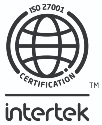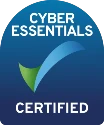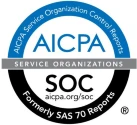Meet the Team: Feargus Brickley Talks Insurtech
Posted on 7th July 2022
| Insights | Meet The Team | Meet the Team: Feargus Brickley Talks InsurtechFeargus Brickley, One of Our Solutions Engineers, Talks Tips and Trends in Insurtech
We sat down with one of our Solutions Engineers, Feargus Brickley, this week to hear about his insurtech insights, discuss his role at INSTANDA and hear what he's most proud of in his career so far.
Feargus also lets us in on his personal goals for the next five years and shares his top tips for young people looking to join the insurtech industry.
Can you tell us a little bit about your background?
I've been a software developer since the beginning of 2018. When my son was born, I had a dramatic life change. We moved towns, I quit my job, switched careers, and jumped into software development. So that was a bit of a risk, but it all panned out perfectly, which is great.
Before INSTANDA, I worked at Zurich Insurance Group, so I’ve got some background in developing software for a larger insurer. Before that, I did loads of different things, trying to find out what I wanted to do. I worked for companies like HSBC and Nationwide in generic admin roles, worked in a hospital for a couple of years, and considered many other things.
I also went to uni in Sussex, studying neuroscience. It's got nothing to do with anything I've done before or since, but it was really interesting, and I’m very glad I did it.
What brought you to INSTANDA?
So I had a slightly strange way of coming to INSTANDA, in that a friend who worked here was leaving and looking for a replacement. When he joined INSTANDA a few years ago, I'd come up to meet the team with a view to joining as a software developer. But, there wasn't an opening at that time.
I'd always wanted to work for a company like INSTANDA. In the past, I've worked for big entities, including the biggest one in the UK, the NHS. I think I've always wanted to move into a smaller, more agile company where you can get things done quicker.
I've heard great things about INSTANDA and liked everybody working here. So when I was given a chance to join, I jumped at that.
What are your main responsibilities at INSTANDA?
My focus is on integrations: how Instanda and the outside world communicate effectively. I like variety and fortunately within this remit there’s lots to do: advise clients on what our functionality is and how best to use it for their use case, design solutions for clients and oversee their development, build proofs of concept for future technologies, and also look at what we’re going to do next and what we want to build as part of the platform. We want to be proactive about these things.
What are the skills you bring to the Solutions team?
I'm a bit of a generalist, I would say, in that I've got insurance software development skills ranging from talking to people about potential projects through to writing the requirements, running the project, developing software, deploying to production, and providing support. I've done that whole lifecycle of software.
I’m also good at people management and customer service because I've done loads of customer service stuff. So yeah, I think I bridge that gap quite nicely between people and delivering software pieces.
What are you most proud of in your career so far?
At Zurich, there are a million different underwriting teams. It's an absolutely colossal company with loads of different business lines. So, a colleague and I decided we couldn't keep building the same systems from scratch each time for different teams.
My last project at Zurich was to build a policy admin system, which is already a really complex bit of software, but with the feature that it could be customised and deployed separately for each underwriting team. That was a major thing to have delivered for Zurich, which increased agility and allowed that team to churn out bits of software for the underwriting teams.
What trends are you most excited about in the insurtech industry?
I don't have an answer specific to insurtech industry, but I think it's very relevant to insurance because there are people across the product lifecycle making tricky decisions in complex environments with incomplete information: actuaries, underwriters, claims handlers.
When I studied neuroscience at uni, I did cognitive science as well. So it wasn't just brains but also bits about artificial intelligence, machine learning and that kind of stuff. A lot of people have this view that machine learning will do everything for us or replace people. But while there are things that computers do well and humans don't, there are areas where humans are great, and computers are terrible.
I think that the confluence of humans doing what humans need to do, augmented by clever tools that do what people can't do, will be incredible.
Do you have any personal goals or ambitions for the next five years?
I’ve just bought a house and am realising how much there is to do there. I’ll have room for some exercise equipment so I can finally be a little bit healthy. I now live near the sea, so I want to kayak and swim. I'm also learning the bass guitar – music making has always been important to me, so I’d like to try to finish something one day and put it out into the world. I have a gorgeous child who’s just starting school and I’d love to have a larger family. So clearly, it's not all going to happen in one go! I’ve always got lots of ideas, so I think it's good to just keep doing what you like and the important things are the ones that endure.
What advice would you give to young people who are looking to join the tech industry?
I'm actually trying to get somebody I know a job at INSTANDA at the moment, and he thinks his CV is work in progress because he’s only done software development for a couple of months. But, there have been plenty of people who’ve done development for over a decade that just trudge through their job so clearly length of career isn’t the right metric.
In my last job, we employed somebody who had only done a software development boot camp but clearly had the enthusiasm, interest and drive to be good at what he was doing. I think that sort of interest and enthusiasm is something you can't teach somebody, whereas every developer learns new tech skills with a new job, no matter their level.
So, my advice would be that if you don't have a large tech background, make sure you can demonstrate that interest and enthusiasm, and find somewhere that’s willing to invest in people, rather than looking for a cog to slot straight into their machine.
We'd like to say thanks to Feargus for his time. If you'd like to find out more about how INSTANDA can help your business, talk to the team or try our free demo.





